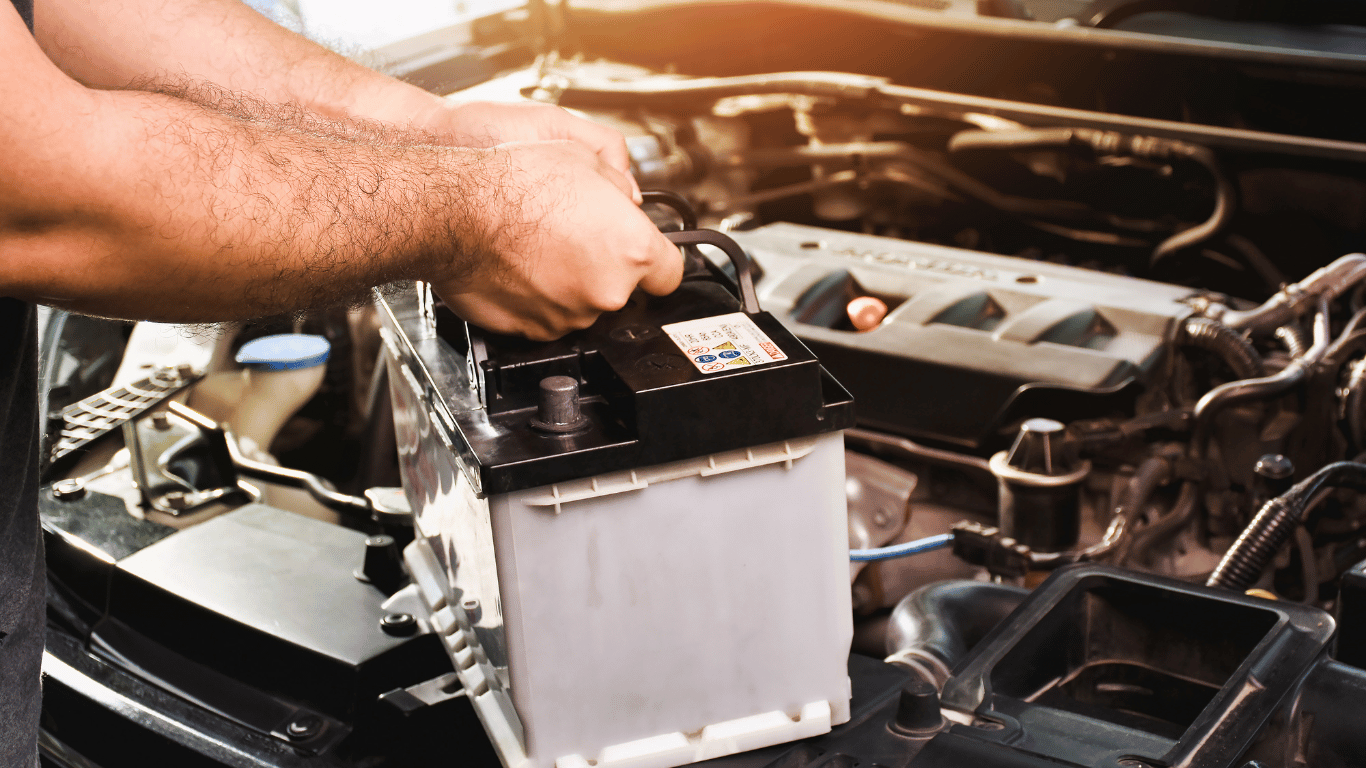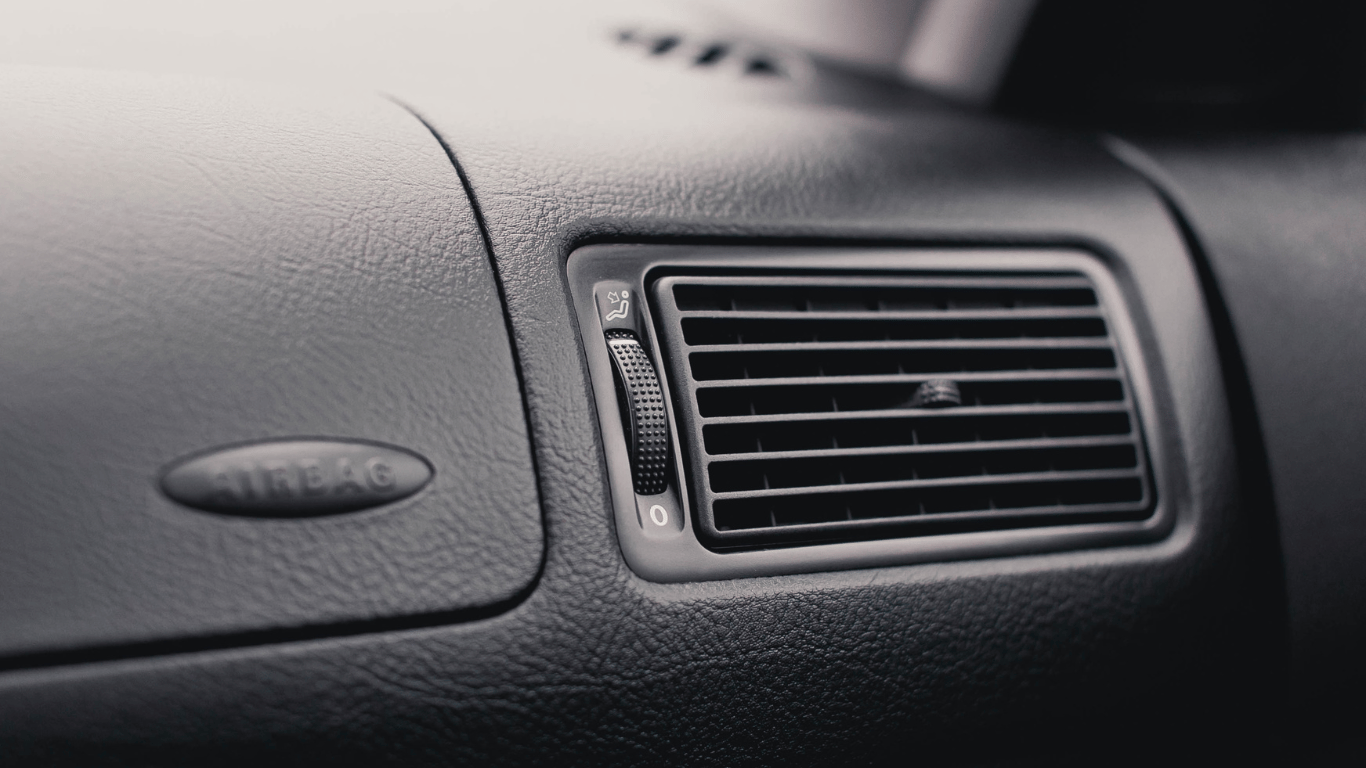Are you ready to discover the perfect car battery for outstanding performance and reliability? Look right this way! In our ultimate guide, we are dedicated to providing you with all the essential information necessary to ensure you make a well-informed decision. A car battery isn’t just a power source; it plays a vital role in guaranteeing the seamless operation of various electrical systems in your vehicle. With a multitude of options available in the market, it’s completely understandable if you find the task of choosing the ideal battery for your car daunting. Fret not! Our comprehensive guide is designed to effortlessly guide you through the crucial factors to consider, including battery size, type, and brand reputation. We’ll also delve into determining the precise power requirements for your vehicle and offer valuable suggestions for battery maintenance. Whether you’re a seasoned car enthusiast or a novice driver, our guide is tailored to empower you with the know-how to make the optimal choice for your car’s battery needs. Don’t settle for anything less than stellar performance – together, let’s uncover the perfect battery!
Fixxr Service: Request a Quote for a Car Battery Replacement
Fixxr Service: View All Fixxr Battery Services
Importance of choosing the right car battery
A car’s battery is a crucial component that powers the vehicle’s electrical systems, including the ignition, lights, and accessories. Choosing the correct car battery is essential for ensuring your vehicle’s optimal performance, reliability, and safety. The wrong battery can lead to a range of issues, from difficulty starting the engine to premature battery failure, leaving you stranded on the road.
It is crucial to select the appropriate battery for your car’s make, model, and year. Each vehicle has specific power requirements and battery specifications that must be met to ensure proper functioning. Choosing a battery that is incompatible with your car can result in decreased battery life, reduced engine starting power, and even damage to your vehicle’s electrical system.
Moreover, the correct car battery can also contribute to improved fuel efficiency and reduced emissions. A well-functioning battery helps maintain the proper voltage and current flow, which in turn optimises the performance of your car’s engine and other components. Conversely, a weak or underperforming battery can lead to increased fuel consumption and higher emissions, negatively impacting both your wallet and the environment.
Understanding car battery basics
Car batteries are designed to provide the necessary power to start the engine and support the vehicle’s electrical system. They are typically made up of several cells, each containing a positive and a negative terminal, immersed in an electrolyte solution. This electrochemical process generates the electrical curreis used to power the car’s various components.
Understanding the essential characteristics of car batteries is crucial when selecting the right one for your vehicle. Key factors to consider include the battery’s voltage, cranking power, and reserve capacity. Voltage refers to the electrical potential difference between the positive and negative terminals, with most car batteries operating at 12 volts. Cranking power, measured in cold cranking amps (CCA), represents the battery’s ability to start the engine in cold weather. Reserve capacity, on the other hand, indicates how long the battery can power the car’s electrical systems when the engine is not running.
Additionally, car batteries come in different sizes and physical dimensions, which must match the specific requirements of your vehicle. Choosing a battery that is too large or too small can lead to installation issues and potential compatibility problems. Understanding these basic battery characteristics will help you decide when to select the right car battery for your needs.
Factors to consider when choosing a car battery
When selecting a car battery, several important factors must be considered to ensure you make the best choice for your vehicle. These factors include battery type, size, brand, and performance specifications.
Battery type is a crucial consideration, as different types of batteries have their own unique characteristics and advantages. The most common types of car batteries are lead-acid, absorbed glass mat (AGM), and lithium-ion. Lead-acid batteries are the traditional option, offering a balance of cost-effectiveness and reliability. AGM batteries, on the other hand, are known for their superior performance in terms of vibration resistance, faster charging, and longer lifespan. Lithium-ion batteries, while more expensive, provide even greater power density and longer cycle life.
Battery size is another essential factor, as it must match the specific requirements of your vehicle. Choosing the wrong size can result in compatibility issues, such as difficulty with installation or improper fit in the battery tray. Refer to your car’s owner’s manual or consult with a professional to determine the correct battery size for your make and model.
The brand and quality of the battery are also important considerations. Reputable brands with a proven track record of reliability and performance are generally the safest choice. Look for batteries that meet or exceed industry standards and have a good warranty to ensure you’re getting a high-quality product. Cheap, low-quality batteries may seem like a bargain, but they often come with a higher risk of premature failure and can potentially cause damage to your vehicle’s electrical system.
Types of car batteries and their pros and cons
When it comes to car batteries, there are several types to choose from, each with its own set of advantages and disadvantages. Understanding the characteristics of each battery type can help you make an informed decision that best suits your vehicle and driving needs.
Lead-acid batteries are the most common and widely used type of car battery. They are relatively inexpensive, readily available, and generally reliable. However, lead-acid batteries have a shorter lifespan compared to other types and can be more sensitive to extreme temperatures, both hot and cold. They also require regular maintenance, such as checking the water levels and cleaning the terminals.
Absorbed glass mat (AGM) batteries, on the other hand, are a more advanced type of lead-acid battery. AGM batteries are designed with a glass mat separator that absorbs the electrolyte, making them spill-proof and more resistant to vibrations. They offer several advantages, including faster charging, longer lifespan, and improved performance in high-demand applications. AGM batteries are typically more expensive than traditional lead-acid batteries, but their superior qualities often justify the higher cost.
Lithium-ion (Li-ion) batteries are the newest and most technologically advanced type of car battery. They are known for their high energy density, low weight, and long lifespan. Li-ion batteries are also less affected by extreme temperatures and require minimal maintenance. However, they are generally more expensive than lead-acid and AGM batteries, and their compatibility with some older vehicles may be limited. Additionally, Li-ion batteries require specialized charging and monitoring systems to ensure safe operation.
Determining the right battery size for your vehicle
Choosing the right battery size for your vehicle is crucial to ensure optimal performance and compatibility. The size of the battery is determined by its physical dimensions, such as length, width, and height, as well as its power output, measured in cold cranking amps (CCA) and reserve capacity (RC).
To determine the correct battery size for your car, you should refer to your vehicle’s owner’s manual or you can check out First Battery Centre’s Battery Finder. The manual will typically specify the recommended battery size, including the dimensions and power output requirements. It’s important to match these specifications precisely to avoid any installation issues or compatibility problems.
Selecting a battery that is too small for your vehicle can lead to insufficient power to start the engine, especially in cold weather conditions. Conversely, a battery that is too large may not fit properly in the battery tray and could cause clearance issues with other components. In either case, the performance and reliability of your vehicle’s electrical system may be compromised.
When determining the right battery size, consider not only the current power requirements of your vehicle but also any future upgrades or modifications you may make. Factors such as the addition of high-powered audio systems, LED lights, or other electrical accessories can increase the overall power demand on the battery. Choosing a battery with a higher CCA and reserve capacity can help ensure your vehicle’s electrical system can handle these increased demands.
Choosing the right battery brand and quality
When it comes to selecting a car battery, the brand and quality of the product are also crucial factors to consider – not just having a battery that is the correct size and specifications. Reputable battery brands with a proven track record of reliability and performance are generally the best choice for ensuring your vehicle’s optimal operation and longevity.
Established battery brands often invest heavily in research and development, ensuring their products meet or exceed industry standards for safety, durability, and performance. These brands typically use high-quality materials and advanced manufacturing processes to create batteries that can withstand the demands of modern vehicles. Additionally, reputable brands often offer comprehensive warranties, providing you with added peace of mind and protection against unexpected failures.
In contrast, lesser-known or generic brand batteries may seem like a more budget-friendly option, but they often come with significant trade-offs in terms of quality and reliability. These batteries may use inferior components, lack proper quality control, and offer limited or no warranty coverage. While the initial cost may be lower, the risk of premature failure, decreased performance, and potential damage to your vehicle’s electrical system can far outweigh any savings.
When selecting a battery brand, it’s important to do your research and read reviews from other car owners and industry experts. Look for brands that are recognized for their commitment to innovation, customer satisfaction, and environmental responsibility. Investing in a high-quality battery from a trusted brand can help ensure your vehicle’s optimal performance, reliability, and longevity for years to come.
Maintaining and prolonging the lifespan of your car battery
Proper maintenance and care are essential for maximizing the lifespan of your car battery. Regular battery maintenance not only ensures reliable performance but also helps prevent unexpected breakdowns and costly replacements.
One of the most important maintenance tasks is regularly cleaning the battery terminals. Over time, the terminals can become corroded, which can impede the flow of electrical current and reduce the battery’s overall efficiency. Use a wire brush or battery terminal cleaner to remove any buildup on the terminals, and apply a thin coat of battery terminal protector to help prevent future corrosion.
Checking the battery’s charge level and specific gravity (for lead-acid batteries) is also crucial. Use a voltmeter or multimeter to monitor the battery’s state of charge and ensure it is within the recommended range. If the battery is consistently undercharged or overcharged, it can lead to premature failure. Consult your owner’s manual or a professional mechanic to determine the optimal charging levels for your vehicle.
In addition to regular maintenance, proper driving and storage habits can also help prolong the lifespan of your car battery. Avoid excessive idling, as this can drain the battery’s charge. Additionally, be mindful of electrical accessories and ensure they are turned off when the engine is not running. When storing your vehicle for an extended period, consider disconnecting the battery or using a battery maintainer to keep it charged and ready for your next drive.
Common car battery problems and troubleshooting tips
Even with proper maintenance, car batteries can sometimes encounter issues that can impact the performance and reliability of your vehicle. Understanding the common problems and how to troubleshoot them can help you address these issues quickly and effectively.
One of the most common battery problems is a dead or weak battery, which can be caused by a variety of factors, such as leaving the lights on, a malfunctioning alternator, or simply old age. If your car won’t start, the first step is to check the battery’s charge level using a multimeter. If the voltage is low, try jump-starting the vehicle or charging the battery using a dedicated battery charger.
Another common issue is battery corrosion, which can occur due to the buildup of sulfate deposits on the battery terminals. This can impede the flow of electrical current and lead to starting problems or reduced battery life. Regularly cleaning the battery terminals and applying a protective coating can help prevent and address this issue.
In some cases, your car’s battery may be the victim of a parasitic drain, where the electrical system is drawing power from the battery even when the vehicle is turned off. This can be caused by a faulty component or wiring issue. To diagnose and address a parasitic drain, you may need to consult a professional mechanic who can use specialized tools to identify the source of the problem.
Regardless of the specific issue, it’s important to address car battery problems promptly to avoid further damage to your vehicle’s electrical system or the need for a costly battery replacement. By being proactive and following the recommended maintenance practices, you can help ensure your car’s battery continues to perform at its best for years to come.
Tips for buying and installing a car battery
Purchasing and installing a new car battery can be a straightforward process, but there are a few important tips to keep in mind to ensure a successful and safe installation.
When it comes to buying a new battery, it’s crucial to select the right one for your vehicle. As discussed earlier, refer to your owner’s manual or contact us to have us guide you through the process to determine the correct battery size, type, and specifications. Avoid the temptation to opt for a cheaper, non-compatible battery, as this can lead to compatibility issues and potential damage to your car’s electrical system.
Before purchasing a new battery, be sure to check the warranty and return policy. Reputable battery brands often offer comprehensive warranties that cover defects and premature failure, giving you added peace of mind. Additionally, some retailers may allow you to exchange or return the battery if it doesn’t meet your vehicle’s requirements.
When it comes to installation, safety should be your top priority. Disconnect the negative (-) terminal first, followed by the positive (+) terminal. This will help prevent any accidental short circuits or sparks. Carefully clean the battery tray and terminals before installing the new battery, ensuring a secure and corrosion-free connection.
Once the new battery is in place, be sure to secure it properly and reconnect the terminals, starting with the positive (+) terminal. Avoid overtightening the connections, as this can damage the battery or the vehicle’s electrical components. Finally, consider using a battery protector or sealant to help prevent future corrosion and maintain the battery’s optimal performance.
By following these tips and taking the necessary precautions, you can ensure a smooth and successful car battery replacement, keeping your vehicle running at its best. Remember, if this all feels a bit daunting feel free to book an appointment with one of our friendly mobile mechanics who can assist you with fitting your new battery for you.
Conclusion: Making the right choice for maximum performance and reliability
Choosing the right car battery is a critical decision that can have a significant impact on your vehicle’s performance, reliability, and overall driving experience. By understanding the importance of selecting the appropriate battery, the various types available, and the key factors to consider, you can make an informed choice that will keep your car running at its best.
Whether you opt for a traditional lead-acid battery, a more advanced AGM model, or a cutting-edge lithium-ion option, the key is to match the battery’s specifications and power output to the unique requirements of your vehicle. Investing in a high-quality, reputable brand and following proper maintenance practices can further ensure the longevity and optimal performance of your car’s battery.
By taking the time to research and select the right car battery, you’ll not only enjoy a smoother, more reliable driving experience but also potentially save money in the long run by avoiding costly breakdowns and premature battery replacements. Remember, your car’s battery is the heart of its electrical system, so choosing wisely is essential for maximum performance and reliability.
With the information and tips provided in this ultimate guide, you now have the knowledge to make the best decision for your car’s battery needs. Embrace the power of an informed choice and enjoy the peace of mind that comes with a well-functioning, high-performing battery. Happy driving!



